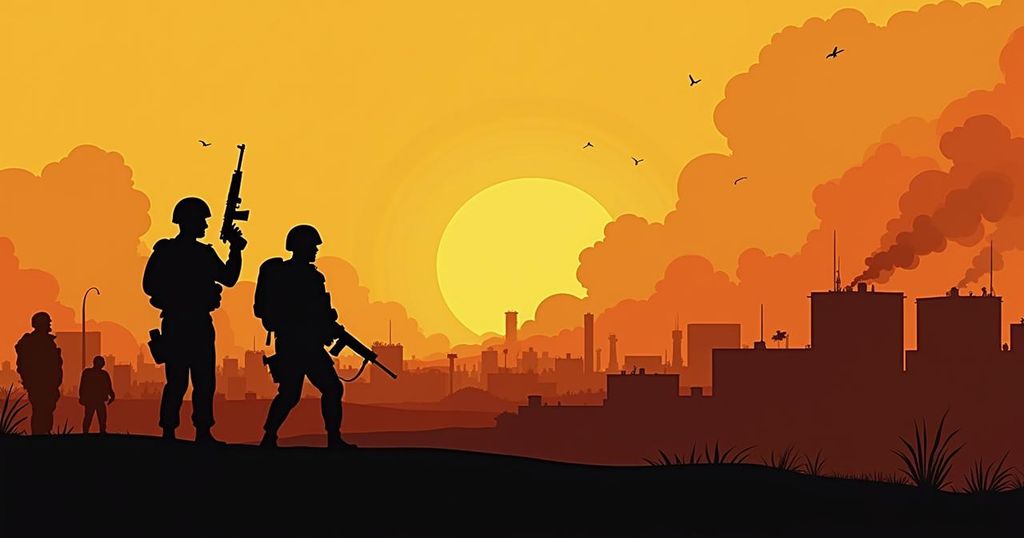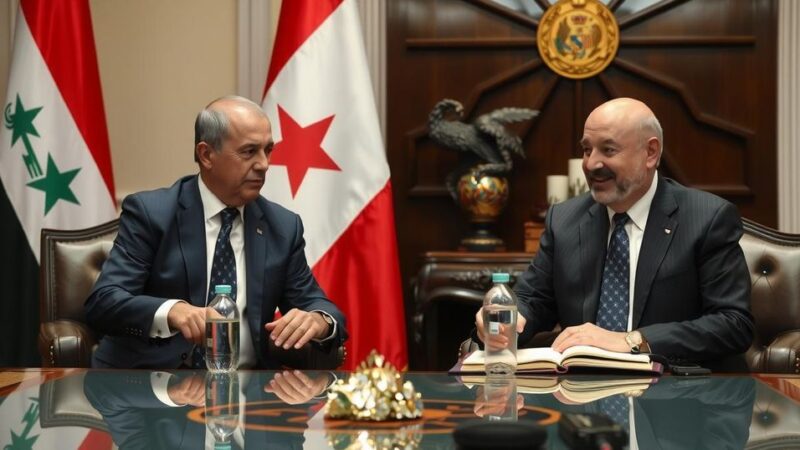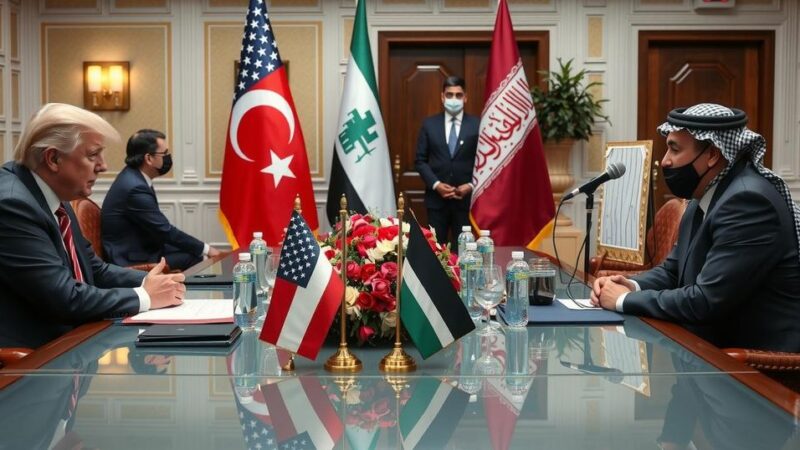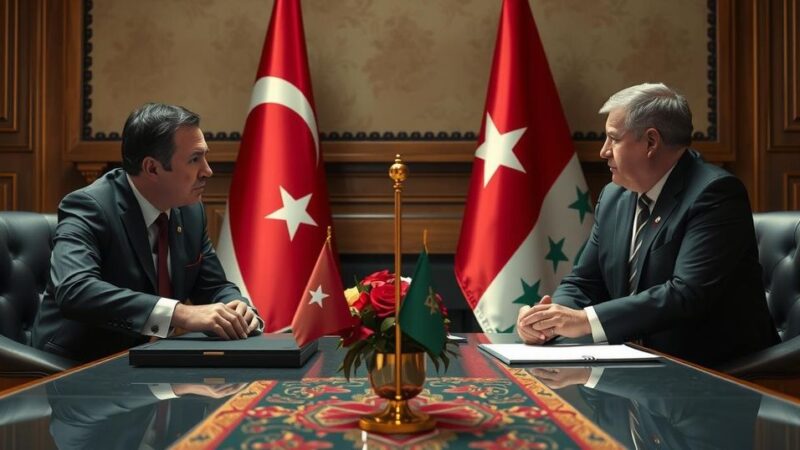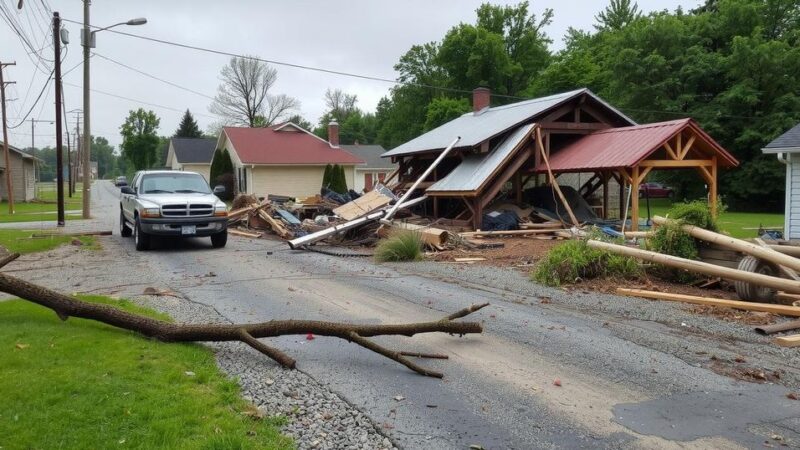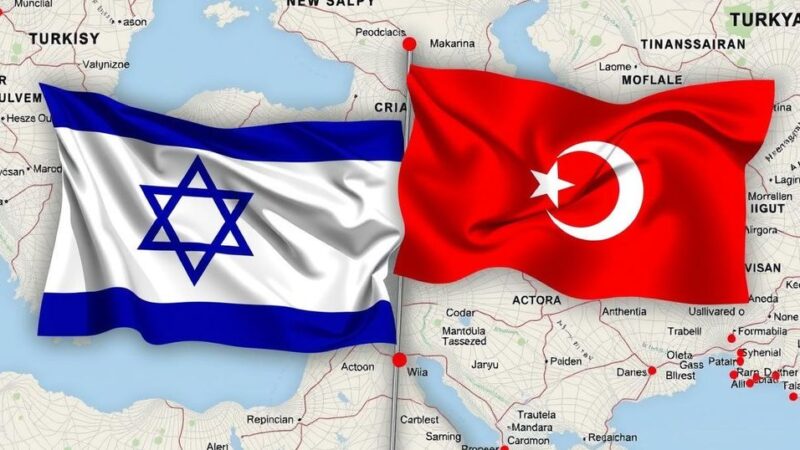Hezbollah clashes with Israeli troops have escalated as Israel intensifies its assaults in Gaza, particularly impacting the family of journalist Ahmed al-Zard. International reactions include calls for military action against Iran and flight cancellations amid rising tensions. The humanitarian situation remains dire in Lebanon, with displaced families struggling to access basic needs.
Hezbollah has engaged Israeli forces in southern Lebanon, coinciding with intensified bombardments of Gaza by Israeli airstrikes. Reports from Israeli media indicate that helicopters were deployed to evacuate soldiers injured in confrontations along the border, while airstrikes also targeted the family home of journalist Ahmed al-Zard, resulting in the deaths of several family members, including his brother, uncle, and two cousins. Al-Zard and others were reported trapped in the aftermath, complicating rescue efforts as Israeli forces restricted access to the site. Amid these events, U.S. Republican officials have echoed calls for military responses against Iran in light of recent missile attacks directed at Israel. The regional tension has prompted FlyDubai airline to cancel flights to several destinations, including Jordan and Israel, due to the escalating threats. Jordan’s government confirmed minor injuries within its borders but emphasized its commitment to safeguarding citizens and avoiding becoming a battleground in the ongoing conflict. International leaders have condemned the situation, with Australian Prime Minister Anthony Albanese denouncing Iran’s missile attacks as perilous escalations while emphasizing the necessity for de-escalation. U.S. Vice Presidential candidates have reiterated their full support for Israel, with emphasis on the country’s right to defend itself, while calling for careful consideration of America’s role in these conflicts. Japan’s new Prime Minister Shigeru Ishiba condemned Iran’s aggression, advocating for cooperative measures with the United States to mitigate tensions. Experts assert that Iran perceives these retaliations as necessary to prevent increased Israeli aggressions, framing their missile attacks as defensive responses rather than acts of war. Amidst this turmoil, humanitarian organizations, notably the International Rescue Committee, have reported dire conditions for displaced Lebanese families, highlighting severe shortages in basic necessities such as food, healthcare, and clean water. They reported that a significant percentage of displaced villagers were struggling to meet essential needs, particularly affecting children and vulnerable populations. Thus, the ongoing conflict continues to exacerbate humanitarian crises across the region, necessitating coordinated efforts for relief and resolution.
The current conflict arises amid heightened tensions in the Middle East, significantly influenced by cross-border hostilities between Hezbollah and Israeli forces, particularly in regions bordering Lebanon and Gaza. The involvement of Iran has also escalated as Iranian forces have launched missile strikes against Israel, prompting urgent responses from regional stakeholders and international allies. Furthermore, the ongoing humanitarian crisis in Lebanon exacerbated by Israeli strikes calls for immediate aid and diplomatic interventions.
In conclusion, the situation in the Middle East is rapidly deteriorating, marked by severe military confrontations between Israel and Hezbollah, escalating violence in Gaza, and significant humanitarian crises affecting displaced populations in Lebanon. International responses continue to evolve, with calls for military actions against Iran and pledges of support for Israel from numerous political leaders. The unfolding events reveal the intertwined nature of regional conflicts and the urgent need for diplomatic solutions and humanitarian assistance to alleviate worsening conditions for affected civilians.
Original Source: www.aljazeera.com

